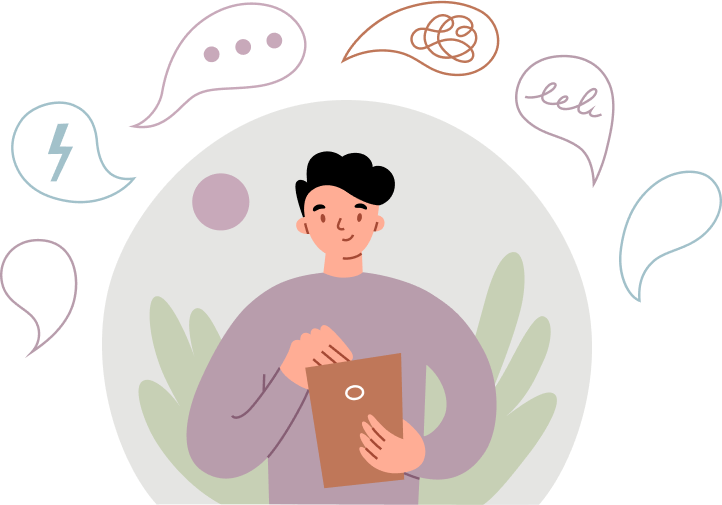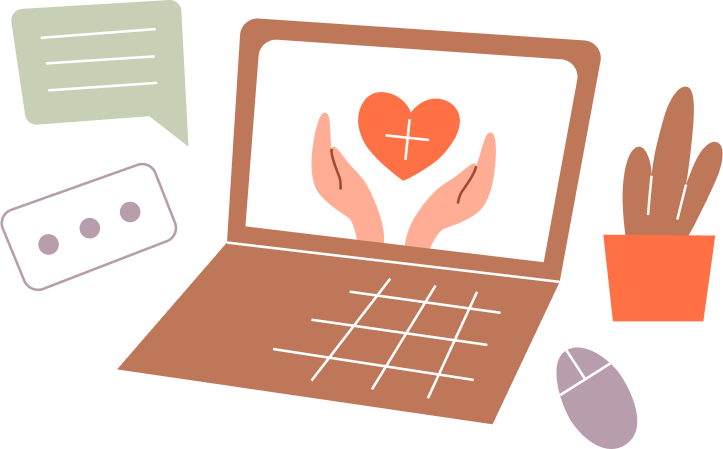How men can build emotional intelligence through counseling
Emotional intelligence (EQ) is the crucial ability to understand, manage, and effectively express one's own emotions, as well as to perceive and influence the emotions of others. For many men, however, these vital skills were never explicitly taught, often leading to struggles with communication, self-awareness, and navigating complex social dynamics. The good news is that EQ is not an innate trait; it's a learnable skill, and therapy offers a structured, supportive, and confidential pathway for men to develop and strengthen their emotional intelligence.

Why emotional intelligence is important
Higher emotional intelligence provides a multitude of tangible benefits that significantly enhance a man's life across all domains. It's not just about "being in touch with feelings"; it's about practical skills that lead to more fulfilling outcomes.
The key benefits of higher EQ include:
-
Stronger personal relationships: When a man can understand and articulate his own emotions, and empathize with his partner's or family members' feelings, it fosters deeper trust, intimacy, and connection. This allows for genuine understanding rather than assumptions, reducing conflict and increasing mutual respect. For example, a man who learns to calmly express his feelings of being overwhelmed, rather than withdrawing or becoming irritable, can transform a tense argument into a productive conversation, thereby improving his marriage.
-
More effective communication: EQ enables clearer, more nuanced communication. Men with higher EQ can express their needs and boundaries assertively without resorting to aggression or passive-aggression. They are also better listeners, truly hearing and validating others' perspectives.
-
Better stress management: Understanding one's emotional triggers and developing healthy coping mechanisms leads to a greater capacity to manage stress, rather than being overwhelmed by it. This prevents emotions from spiraling into anxiety, anger, or burnout.
-
Increased self-confidence: When a man understands his own emotional landscape, he gains a stronger sense of self. This self-awareness translates into greater self-confidence, improved decision-making, and a more resilient approach to challenges.
-
Enhanced professional success: In the workplace, high EQ is increasingly recognized as a critical leadership trait. It improves teamwork, conflict resolution, negotiation skills, and the ability to motivate and manage others effectively.
Ultimately, emotional intelligence empowers men to navigate the complexities of life with greater ease, authenticity, and success.

The challenges men face
Despite the clear benefits, many men face significant hurdles in developing their emotional intelligence, largely due to deeply ingrained cultural messages and societal expectations around masculinity. These norms often teach men to:
-
Suppress feelings: Boys are frequently told to "man up," "don't cry," or "shake it off." This discourages the expression of emotions, particularly sadness, fear, or vulnerability, leading to emotional repression.
-
Avoid vulnerability: Showing vulnerability is often equated with weakness, leading men to build emotional walls and avoid situations where they might feel exposed.
-
Focus on logic over emotion: Masculine ideals sometimes prioritize rationality and problem-solving, implying that emotions are secondary or irrelevant to effective action.
-
Express emotions through limited channels: Anger and frustration may become the only "acceptable" emotions for men to express, leading to misunderstandings and strained relationships. A common scenario involves a man who feels a generalized sense of irritation or rage but cannot pinpoint its source, leading to explosive outbursts or silent resentment, without understanding that anger often masks underlying emotions like sadness, fear, or helplessness.
-
Lack of emotional vocabulary: Without practice in expressing a full range of emotions, many men simply lack the words or the nuanced understanding to articulate what they are truly feeling beyond basic terms like "good," "bad," or "mad."
These cultural messages can create a profound internal conflict, leading to misunderstandings with loved ones, chronic frustration, increased isolation, and an inability to connect deeply with themselves or others. The very skills that could resolve these issues are often those they were taught to suppress.
How counseling develops emotional skills
Counseling provides a uniquely safe, structured, and non-judgmental environment for men to unpack these cultural messages and systematically build their emotional intelligence. It's a space where vulnerability is not only accepted but encouraged as a path to strength.
Here’s how therapy helps men develop essential emotional skills:
-
Learn to name and understand emotions: A therapist helps men expand their emotional vocabulary beyond basic feelings. Through guided discussions, they learn to identify and differentiate between nuanced emotions like frustration, disappointment, anxiety, shame, or grief. This process involves recognizing the physical sensations associated with different emotions and understanding their triggers.
-
Recognize triggers and patterns: Therapy helps men identify specific situations, thoughts, or interactions that consistently lead to strong emotional reactions. By understanding these triggers, men can learn to anticipate their emotional responses and develop healthier coping mechanisms before emotions escalate.
-
Practice expressing feelings without shame: In the safe space of therapy, men can practice articulating their emotions out loud, often for the first time without fear of judgment or negative consequences. This desensitizes them to the discomfort of vulnerability and builds confidence in expressing themselves authentically.
-
Develop empathy and perspective-taking: Therapists guide men in understanding the emotional experiences of others. This might involve discussing relationship dynamics, practicing active listening, or exploring how their own actions impact others' feelings.
-
Explore emotional origins: Therapy can delve into past experiences or childhood messages that contributed to emotional suppression or specific coping styles, helping men understand why they react the way they do and how to reframe those learned responses.
Therapists employ various exercises and techniques to facilitate this learning. For instance:
-
Role-playing conversations: Practicing difficult conversations (e.g., with a partner or colleague) in a controlled setting allows men to try out new ways of expressing themselves and receiving feedback.
-
Journaling about emotions: Encouraging regular journaling helps men tune into their inner experiences, track emotional patterns, and articulate feelings in written form, which can then be discussed in sessions.
-
Mindfulness exercises: Learning to observe emotions without judgment can help men create a healthy distance from overwhelming feelings, allowing for a more thoughtful response rather than a reactive one.
-
Body scan meditations: These exercises help men connect with the physical sensations of emotions, a crucial step for those accustomed to dissociating from their feelings.
Through these methods, counseling provides a practical "gym" for emotional development, equipping men with tangible skills that extend far beyond the therapy room.
Positive changes men experience
The journey of building emotional intelligence through counseling yields profound and often life-altering positive changes for men. These shifts extend across personal relationships, professional interactions, and their overall sense of well-being.
-
More trust and intimacy with partners: As men learn to express their authentic selves and respond with greater empathy, their romantic relationships deepen. They report feeling more understood and connected, fostering a level of trust and intimacy that was previously unattainable. For instance, a man who once bottled up his stress might now openly share his struggles with his partner, allowing her to offer support and feel closer to him.
-
Greater patience with children or colleagues: Increased self-awareness and emotional regulation lead to a calmer, more patient demeanor. Men become better equipped to manage their own frustrations, allowing them to respond to challenges from children or colleagues with greater understanding and less reactivity. A father who learns to identify his own triggers for anger might find himself responding to a child's tantrum with calm reassurance instead of immediate frustration.
-
Reduced conflicts and improved self-esteem: By learning to communicate needs effectively and manage difficult emotions, men experience fewer misunderstandings and conflicts. This leads to a greater sense of control and competence in their interactions, which in turn significantly boosts self-esteem. They move from reacting to situations to responding thoughtfully.
-
Increased authenticity and purpose: As emotional walls come down, men often report feeling more "real" and aligned with their true selves. This authenticity can lead to a greater sense of purpose and fulfillment in their lives.
-
Better physical health: The chronic stress associated with emotional suppression often manifests physically. As men learn to manage their emotions, they may experience reductions in stress-related symptoms like headaches, digestive issues, and muscle tension.
These are not just theoretical outcomes; they are common success stories shared by countless men who have courageously embarked on the journey of building their emotional intelligence through therapy.
Getting started with counseling
Taking the first step toward building emotional intelligence through counseling is a powerful decision. While the prospect might feel uncomfortable initially, remember that growth often begins at the edge of your comfort zone.
Here’s step-by-step guidance to help you begin:
-
Reflect on your goals: Before searching for a therapist, take a moment to consider what specific emotional skills you want to develop. Do you want to improve communication in your marriage, manage work stress better, understand your anger, or connect more deeply with your children? Having clear goals can help guide your search.
-
Look for therapists who specialize in men’s issues or emotional intelligence: When researching therapists (online directories or platforms are excellent for this), look for those who explicitly mention experience working with men, focusing on emotional intelligence, communication skills, anger management, or relationship dynamics. Some therapists may even highlight a "masculinity-affirmative" approach.
-
Prioritize the therapeutic fit: The most crucial element of successful therapy is the relationship you build with your therapist. Many therapists offer a free introductory consultation call. Use this opportunity to ask questions and, most importantly, gauge how comfortable and understood you feel. Do they listen well? Do you feel respected? This connection is paramount.
-
Be open to trying new approaches: Therapy might introduce concepts or exercises that feel unfamiliar or even awkward at first (e.g., journaling, role-playing, mindfulness). Approach these with an open mind and a willingness to experiment. Remember, growth requires stepping outside of old patterns.
-
Understand that growth takes time and practice: Building emotional intelligence is not a quick fix; it's a process. Be patient with yourself and committed to the journey. Consistent effort both in and outside of sessions will lead to lasting change.
-
Consider online therapy for convenience: For many men with demanding schedules, online therapy offers a highly flexible and discreet way to access support, eliminating commute times and allowing sessions from the privacy of their home or office.
Taking this first step is a testament to your commitment to self-improvement and a more fulfilling life.
Conclusion
In an era that increasingly values genuine connection and effective leadership, building emotional intelligence is not merely a soft skill; it's a fundamental strength. For men, embracing this journey through counseling is a powerful act of courage, maturity, and self-responsibility. It allows them to break free from outdated societal expectations, bridge communication gaps, and cultivate richer, more authentic relationships. By taking the first step towards a deeper understanding and mastery of their emotions, men can unlock a more connected, confident, and genuinely fulfilling life.
Kareem Haddad, LMFT
Family Therapist
Kareem is a licensed marriage and family therapist who specializes in intergenerational dynamics, parenting challenges, and communication repair. He believes healing begins with listening both to yourself and to the people you love
Category





